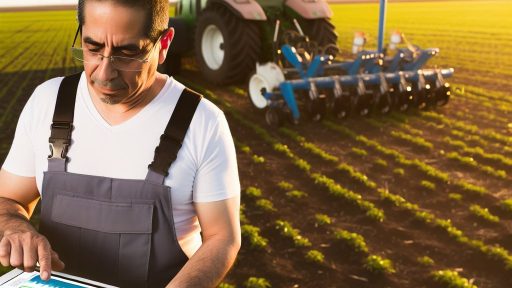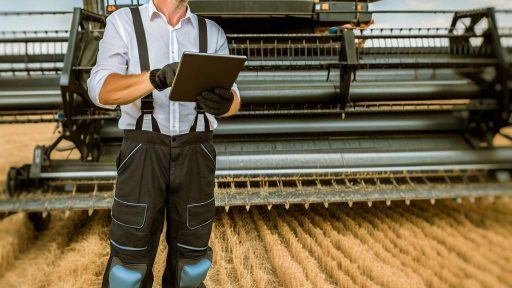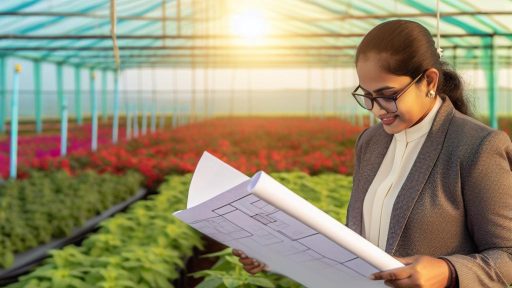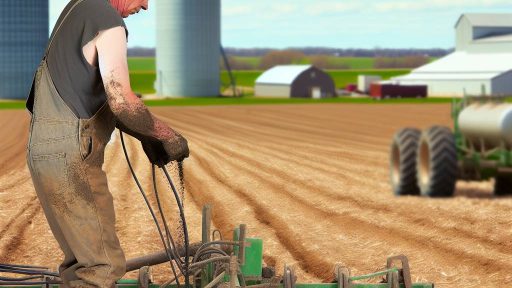Introduction to Precision Agriculture and Its Importance in Modern Farming
Defining Precision Agriculture
Precision agriculture uses technology to improve farming practices.
It involves collecting and analyzing data for better decision-making.
This approach enables farmers to maximize their yields efficiently.
Advantages of Precision Agriculture
One significant advantage is reduced resource waste.
Farmers can conserve water, fertilizers, and pesticides through targeted applications.
Additionally, precision agriculture enhances crop management strategies.
Technological Innovations in Farming
Modern farming employs various technologies to support precision agriculture.
GPS and GIS technologies facilitate accurate field mapping.
Drones provide aerial imagery for crop health monitoring.
Remote sensors collect data on soil moisture levels.
These tools help farmers make informed, data-driven decisions.
Improving Crop Resilience
Precision agriculture contributes to improved crop resilience.
Farmers can identify stress factors early and address them promptly.
This proactive approach reduces the likelihood of crop failures.
Economic Benefits
Investing in precision agriculture leads to significant economic gains.
Transform Your Agribusiness
Unlock your farm's potential with expert advice tailored to your needs. Get actionable steps that drive real results.
Get StartedFarmers often see an increase in crop yields and profitability.
By optimizing inputs, they can achieve a better return on investment.
Contributing to Sustainable Practices
Precision agriculture promotes sustainable farming practices.
It encourages methods that protect the environment and conserve resources.
This alignment with sustainability goals is increasingly important.
Overview of Smart Irrigation Technologies and Their Role in Efficient Water Use
Defining Smart Irrigation
Smart irrigation refers to advanced systems that optimize water use in agriculture.
These systems rely on technology to apply precise amounts of water to crops.
Ultimately, they aim to reduce waste while maximizing crop yield.
Technologies Enhancing Smart Irrigation
Various technologies enhance the efficiency of smart irrigation systems.
- Soil moisture sensors detect when plants need water.
- Weather forecasting tools predict rainfall and adjust irrigation schedules.
- Automated irrigation controllers manage water application based on real-time data.
- Drones help monitor crop health and water distribution.
Benefits of Smart Irrigation Systems
Smart irrigation provides numerous benefits for crop farming.
- It significantly reduces overall water consumption.
- Farmers can achieve better crop health and productivity.
- Moreover, these systems lower labor costs by automating irrigation tasks.
- They also minimize water runoff and soil erosion.
Challenges and Considerations
Despite their advantages, implementing smart irrigation poses challenges.
The initial investment can be high for some farmers.
Furthermore, proper training is essential for optimal use of the technology.
Integrating these systems requires a solid understanding of local climate conditions.
The Future of Smart Irrigation
The future of smart irrigation looks promising with ongoing advancements.
Research continues to focus on improving technology and accessibility.
Ultimately, these innovations will ensure sustainable water use in agriculture.
Farmers will increasingly rely on smart irrigation to face climate change challenges.
Benefits of Precision Agriculture for Crop Yield Optimization
Enhanced Water Management
Precision agriculture improves water management in crop farming.
It uses data analytics to monitor soil moisture levels effectively.
Farmers can apply the appropriate amount of water precisely when needed.
As a result, crop health improves significantly.
This approach reduces water wastage and conserves resources.
Increased Crop Yields
Employing precision agriculture leads to increased crop yields.
Showcase Your Farming Business
Publish your professional farming services profile on our blog for a one-time fee of $200 and reach a dedicated audience of farmers and agribusiness owners.
Publish Your ProfileBy using sensors, farmers can analyze crop health in real-time.
This data drives timely interventions for pest control and fertilization.
Consequently, farmers can harvest more produce from each field.
Higher yields contribute to improved profitability and sustainability.
Cost Efficiency
Precision agriculture enhances cost efficiency in farming.
It helps farmers make informed decisions on resource allocation.
With accurate data, unnecessary expenditures on water and fertilizers are reduced.
This optimizes operational costs and maximizes profit margins.
Furthermore, farmers can focus their efforts on areas needing attention.
Environmentally Sustainable Practices
Adopting precision agriculture promotes environmentally friendly practices.
It minimizes the overuse of fertilizers and pesticides.
By doing so, it reduces the risk of soil and water pollution.
Farmers can implement sustainable practices while maintaining productivity.
This approach fosters a healthier ecosystem for future generations.
Improved Decision-Making
Precision agriculture empowers farmers with data-driven insights.
Access to analytics allows for better planning and forecasting.
Farmers can adapt to changing weather patterns more effectively.
This proactive strategy enhances resilience in crop farming.
Thus, farmers increase their ability to manage risks and uncertainties.
You Might Also Like: Sustainable Pest Management for Commercial Real Estate Properties
Understanding Soil Moisture Sensors and Their Application in Smart Irrigation
Introduction to Soil Moisture Sensors
Soyl moisture sensors measure the water content in the soil.
They play a critical role in precision agriculture.
Farmers use these sensors to optimize irrigation schedules.
Additionally, they help in conserving water resources.
Types of Soil Moisture Sensors
There are various types of soil moisture sensors available.
Capacitive sensors provide accurate measurements of soil moisture.
Resistance sensors measure changes in electrical resistance.
Tensiometers gauge the tension of water in the soil.
Each type has its own advantages and limitations.
Benefits of Using Soil Moisture Sensors
Soyl moisture sensors enhance irrigation efficiency significantly.
They help prevent overwatering and underwatering of crops.
Moreover, these sensors contribute to better crop yield.
They also support sustainable water management practices.
Integrating Sensors into Smart Irrigation Systems
Integrating soil moisture sensors into irrigation systems is crucial.
This integration allows for real-time data collection.
Farmers can automate irrigation based on soil moisture levels.
Automated systems minimize human error in irrigation decisions.
Challenges and Considerations
Despite their benefits, soil moisture sensors face challenges.
The initial investment can be high for small-scale farmers.
Understanding how to interpret sensor data is essential.
Showcase Your Farming Business
Publish your professional farming services profile on our blog for a one-time fee of $200 and reach a dedicated audience of farmers and agribusiness owners.
Publish Your ProfileMoreover, technology maintenance is vital for effective operation.
Future Trends in Soil Moisture Sensing
Technology continues to evolve in soil moisture sensing.
Wireless sensors are becoming increasingly popular.
These sensors offer greater flexibility in sensor placement.
Advanced data analytics will enhance decision-making further.
You Might Also Like: Greenhouse Development for Suburban Property Owners
Integrating Remote Sensing and Drones in Precision Agriculture for Irrigation Management
Overview of Precision Agriculture
Precision agriculture enhances farming efficiency through technology.
Farmers use data to make informed decisions.
Advanced tools improve water management significantly.
Role of Remote Sensing
Remote sensing involves collecting data from a distance.
This technology helps assess crop health easily.
It identifies areas requiring more or less irrigation.
Farmers gain real-time insights into soil moisture levels.
Moreover, it tracks changes over time for better planning.
Benefits of Using Drones
Drones provide a unique vantage point for monitoring fields.
They capture high-resolution images quickly and efficiently.
This aerial perspective aids in identifying irrigation needs.
Farmers can apply targeted irrigation based on precise data.
Using drones saves time and reduces resource wastage.
Data Integration for Smart Irrigation
Integrating data from remote sensing and drones enhances decision-making.
Farmers can develop tailored irrigation strategies using this data.
Combining datasets allows for comprehensive analysis of crop needs.
Consequently, smart irrigation solutions become more effective.
Challenges in Implementation
Despite its advantages, some challenges exist.
Initial costs for equipment and technology can be high.
Additionally, farmers need training to use these tools effectively.
Data management also poses challenges for some operations.
Overcoming these obstacles requires commitment and investment.
Future Prospects of Precision Irrigation
The future of precision irrigation looks promising.
Technological advancements will further enhance capabilities.
As costs decrease, more farmers will adopt these practices.
Sustainable agricultural practices will improve food security globally.
Ultimately, precision agriculture can lead to healthier ecosystems.
See Related Content: Conservation Tillage Research Insights for Agricultural Success
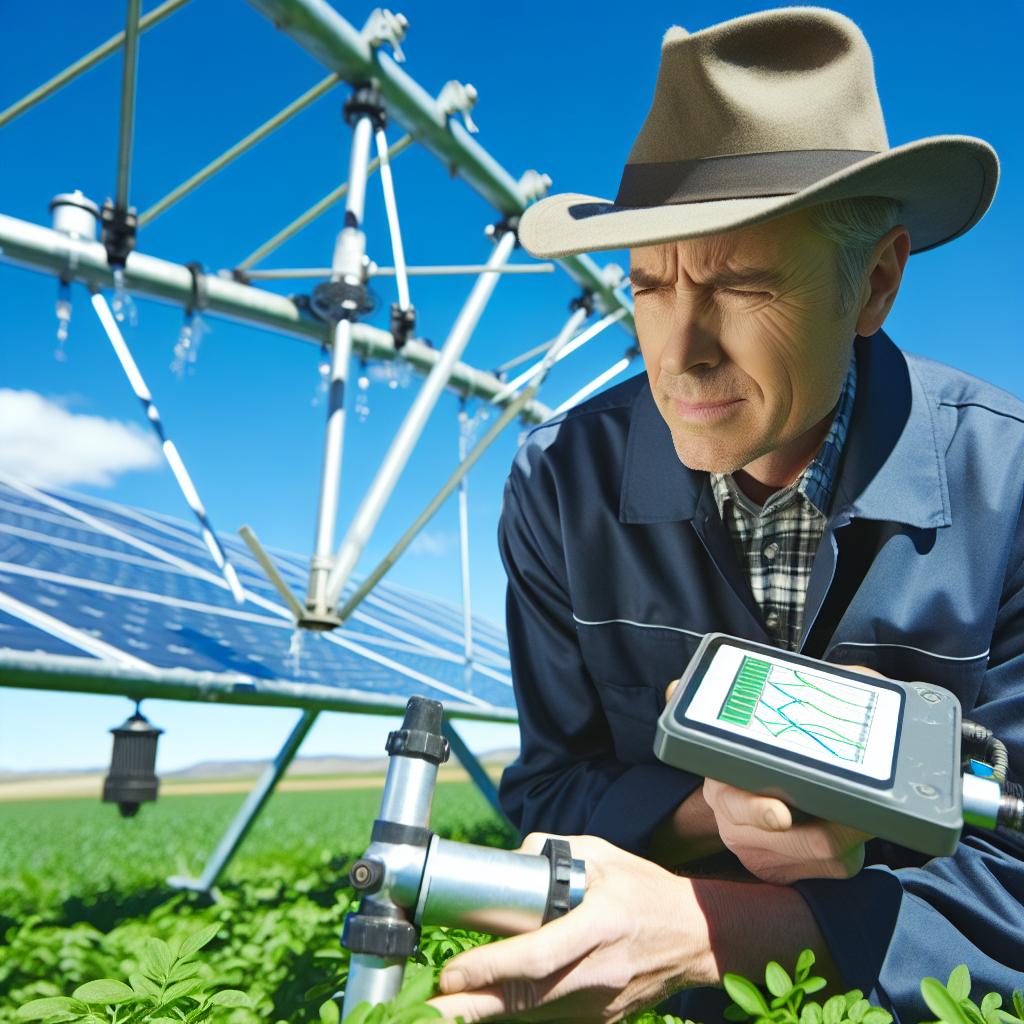
Case Studies on Successful Implementation of Smart Irrigation in Various Crops
Introduction to Smart Irrigation
Smart irrigation utilizes technology for precise water management.
It improves crop yields while conserving water resources.
Various case studies demonstrate its effectiveness across different crops.
Case Study: Vineyards in Napa Valley
In Napa Valley, vineyard owners adopted smart irrigation techniques.
They implemented soil moisture sensors to monitor water levels.
This approach allowed them to irrigate only when necessary.
Showcase Your Farming Business
Publish your professional farming services profile on our blog for a one-time fee of $200 and reach a dedicated audience of farmers and agribusiness owners.
Publish Your ProfileAs a result, climate resilience increased, and water waste decreased.
Consequently, grape quality improved, leading to higher wine quality.
Case Study: Corn Farming in Iowa
Iowa corn farmers integrated smart irrigation systems in their fields.
They used automated valves connected to weather data software.
This innovation ensured precise water delivery based on weather patterns.
Furthermore, farmers reported a 30% reduction in water usage.
Yield increased by 15% compared to traditional irrigation methods.
Case Study: Citrus Groves in Florida
Florida citrus farmers turned to smart irrigation for water management.
By utilizing drip irrigation systems, they maximized efficiency.
Soil sensors monitored moisture levels and adjusted water supply accordingly.
This method reduced fungal diseases due to diminished excess moisture.
Overall, this technique led to healthier trees and enhanced fruit quality.
Case Study: Organic Vegetables in California
California organic vegetable growers implemented smart irrigation strategies.
They incorporated rainwater harvesting systems to optimize water use.
Flexibility in irrigation methods protected against extreme weather events.
As a result, these farmers saw improved crop resilience and sustainability.
Their produce gained popularity due to its consistent quality and flavor.
Benefits of Smart Irrigation Across Different Crops
These case studies illustrate the versatility of smart irrigation.
They demonstrate significant benefits across various crop types.
Additionally, smart irrigation contributes to sustainable farming practices.
Ultimately, technology enhances agricultural productivity and environmental responsibility.
See Related Content: Greenhouse Cultivation for Organic Crop Production in the USA
Challenges and Limitations of Adopting Precision Agriculture Techniques
High Initial Costs
Investing in precision agriculture can require significant upfront capital.
This includes expenses for advanced technologies and equipment.
Agricultural producers might find financing these costs challenging.
Moreover, the return on investment can take time to materialize.
Technological Complexity
Precision agriculture often involves complex systems and tools.
Farmers must learn to operate different software and hardware.
This learning curve can be overwhelming for some individuals.
Additionally, there may be a lack of adequate training resources.
Dependence on Data Accuracy
Successful precision agriculture relies heavily on accurate data.
Yet, data collection methods might not always yield reliable results.
Environmental factors can affect the quality and consistency of data.
Consequently, inaccurate data can lead to poor decision-making.
Limited Internet Access
Many rural areas suffer from inadequate internet connectivity.
This can hinder the effectiveness of precision agriculture techniques.
Farmers may struggle to access real-time data needed for farming decisions.
Consequently, unreliable connectivity can hamper overall productivity.
Resistance to Change
Some farmers might resist adopting new agricultural practices.
This reluctance can stem from a preference for traditional methods.
Showcase Your Farming Business
Publish your professional farming services profile on our blog for a one-time fee of $200 and reach a dedicated audience of farmers and agribusiness owners.
Publish Your ProfileChange often involves taking risks, which can be daunting.
Furthermore, a lack of awareness about benefits can fuel this resistance.
Integration with Existing Systems
Integrating precision agriculture with current farming systems can pose challenges.
Older equipment might not be compatible with newer technologies.
This can lead to additional costs for upgrading existing machinery.
Moreover, seamless integration is crucial for effective operations.
Future Trends in Precision Agriculture for Smart Irrigation
Innovative Technologies Driving Change
Developments in sensor technology enhance irrigation precision.
These sensors allow farmers to monitor soil moisture in real-time.
Moreover, satellite imagery offers valuable insights into crop health.
This data helps optimize irrigation schedules effectively.
Data Analytics for Better Decision-Making
Data analytics plays a crucial role in smart farming.
Farmers use advanced software to interpret irrigation data.
Consequently, they can make informed decisions easily.
Predictive analytics enables proactive water management strategies.
Integrating IoT for Enhanced Connectivity
The Internet of Things (IoT) is transforming agriculture.
Connected devices share data seamlessly within the farming ecosystem.
This integration enhances communication between equipment and farmers.
As a result, irrigation systems become more efficient and responsive.
Sustainability Initiatives in Irrigation Practices
Future trends emphasize sustainable agriculture practices.
Farmers are exploring water conservation techniques actively.
Additionally, drought-resistant crops are gaining traction among growers.
These steps aim to minimize water usage without compromising yield.
Government Programs and Support
Government initiatives are vital in promoting smart irrigation technologies.
Subsidies encourage farmers to adopt innovative irrigation solutions.
Furthermore, training programs improve farmer literacy in technology.
This support helps farmers transition to smart irrigation systems.

